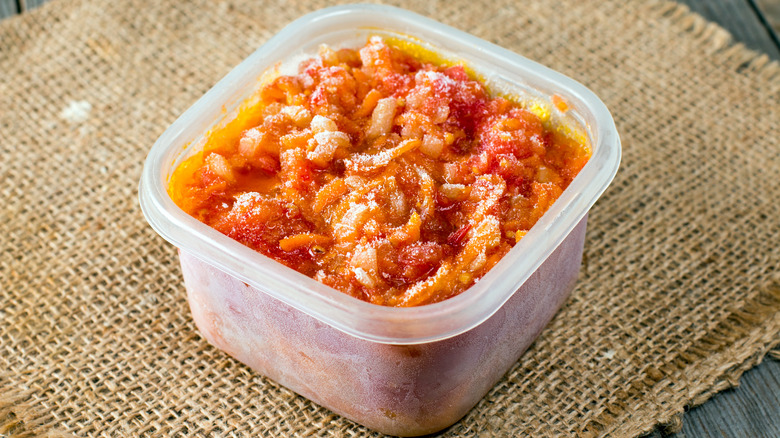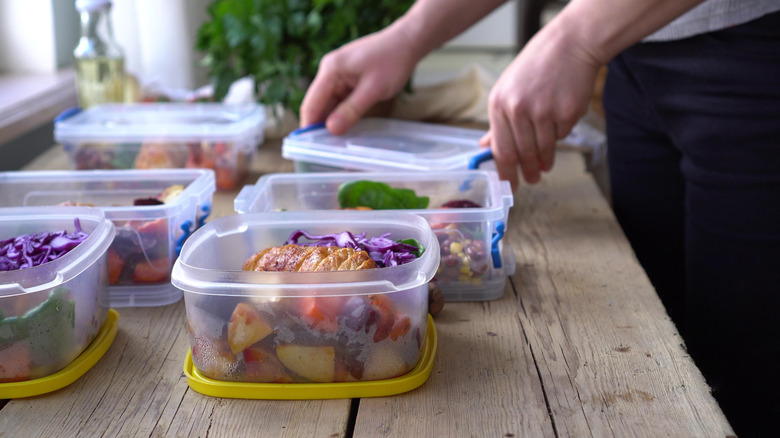Here's Why You Need To Freeze Leftovers As Soon As Possible
Have you ever noticed that some leftovers taste way better than the dish did when it was only recently prepared? Think complex, layered dishes such as soups, stews, and casseroles. Although often quite delicious the day they're made, they almost always are even more palate-pleasing the next day, or even the day after that, according to Forbes. If you feel that way, it's not just you: Cook's Illustrated actually tested the theory out, preparing batches of French onion soup, black bean soup, and tomato soup, refrigerating them for two days, and then serving each dish alongside a fresh version made that day to a panel of tasters. Unanimously, tasters preferred the "aged" version of the soups.
The magazine's science editor, Guy Crosby, shed some light on the results of the experiment. As foods such as these cool, he explained, certain chemical reactions continue to take place in them. The lactose in milk or cream breaks down into sweeter-tasting glucose. The carbohydrates in onions turn into sugars, such as fructose and glucose. Meat proteins morph into individual amino acids, which are flavor enhancers. And the starches in potatoes and flour break down into flavorful compounds.
One might think, therefore, that purposely letting leftovers "age" in the fridge — as opposed to freezing them straightaway — might be necessary in order to kick off this cascade of chemical reactions. But that isn't the case at all.
It's the initial cooling period that develops all those nice flavors
If you've made a batch of soup or stew and you've gotten the idea to purposely let it sit in the fridge — instead of freezing it for later — in order to develop all those yummy "leftovers flavors," it's really not necessary, according to Cook's Illustrated. The outlet conducted a follow-up to its initial leftovers experiment after its science editor, Guy Crosby, remarked that the cascade of chemical reactions that occurs in leftovers to produce flavorful compounds slows way down once the food is frozen — which would, potentially, be an argument for allowing food to "ripen" before freezing it.
The outlet's test kitchen prepared two batches each of chili and banana bread, freezing one batch of each right after cooling and freezing the second batch after three days of aging in the fridge. Once each batch was defrosted, tasters sampled them and agreed that there was almost no noticeable difference. This is likely due to the fact that the majority of the flavor development occurs during the initial cooling-down phase, as the hot food comes to room temperature. While there could be some additional chemical processes in the refrigerator, Cook's Illustrated writes, it's not sufficient to make a true difference; and since baked goods like banana bread can quickly go stale — and bacteria will start to proliferate even in refrigerated foods — the wisest course of action, from a practical perspective, is to freeze leftovers right away.

